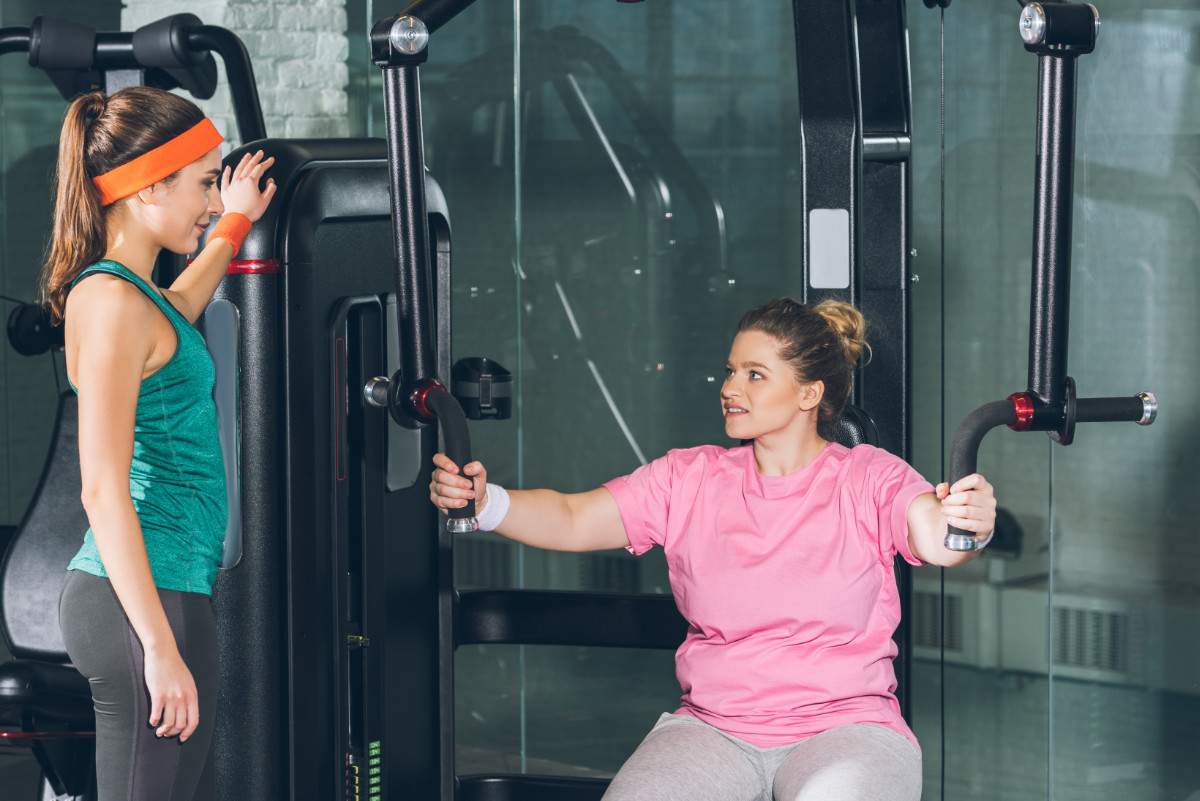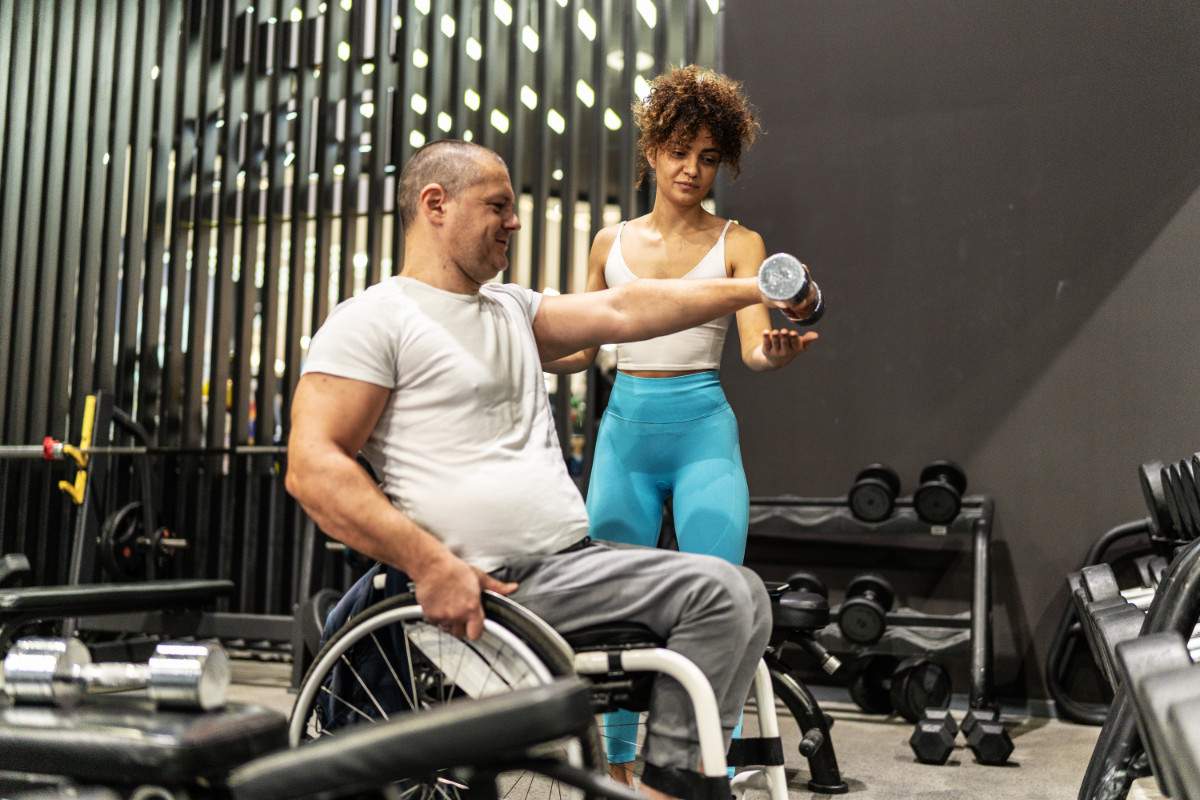NDIS Funded Exercise Programs are specialised fitness services that help people with disabilities get stronger, healthier, and more independent, with the National Disability Insurance Scheme paying for programs that align with your goals and improve daily life.
What these programs include
Programs can involve personal training sessions, gym memberships, group fitness classes, hydrotherapy, and sports activities tailored to your needs and goals.
In Melbourne suburbs like Elwood, qualified trainers work specifically with NDIS participants to create safe, effective workout plans that build strength, mobility, and confidence.
9 Steps To Shed 5-10kg In 6 Weeks
Includes an exercise plan, nutrition plan, and 20+ tips and tricks.
Download FreeHow much the NDIS pays
Funding is based on your needs and goals, with most participants receiving between $1,500 and $15,000 per year for exercise supports.
This typically comes from your Capacity Building budget, which funds supports that build skills and independence, including exercise that improves health and daily function.
Typical Melbourne pricing
- Personal training sessions: $80–$150 per hour
- Group classes: $35–$60 per session
- Covered when included in your approved NDIS plan
What the NDIS funds
The NDIS funds exercise supports that are reasonable and necessary for your disability when they clearly help you meet plan goals.
Eligible exercise supports
- Personal training with qualified disability fitness trainers
- Accessible gym memberships and supervised sessions
- Hydrotherapy and pool-based exercise
- Disability-specific group fitness classes and sports
- Strength training to improve mobility and prevent falls
- Cardiovascular, flexibility, and balance training
Choose trainers with disability experience in Elwood and surrounding suburbs who adapt exercises for different needs and coordinate with allied health providers.
Do you need a referral?
You don’t need a doctor’s referral, but your plan should include exercise goals; explain to your planner how fitness supports independence and daily tasks.
If you have specific health conditions, a GP or physiotherapist letter supporting supervised exercise can strengthen your funding request.
Finding providers in Elwood
Look for providers who are registered with the NDIS Quality and Safeguards Commission and who list NDIS services with experience across diverse disabilities.
Questions to ask
- Have you worked with my disability before?
- Do you offer home, park, pool, or local gym sessions?
- What are your rates and NDIS payment processes?
- Can you coordinate with my physiotherapist or occupational therapist?
Many Elwood fitness professionals offer mobile services, meeting at your home, local park, or preferred gym for convenience and consistency.
Results you can expect
Regular training three times per week builds muscle, improves bone density, boosts energy, and increases independence for daily activities.
Common improvements
- Better balance and fewer falls
- Increased strength for daily tasks
- Improved mental health, sleep, and confidence
- More energy and greater self-care independence
Working consistently with a qualified trainer two to three times per week yields the best results; your trainer will track progress and adjust your plan.
Sports nutrition services
The NDIS can fund sports nutrition when linked to your disability and goals; practitioners create meal plans that support training, weight management, and health.
Typical nutrition fees
- Initial consultation: $120–$200
- Follow-up sessions: $80–$150
- Usually from the same Capacity Building budget as exercise
Choose a nutritionist who understands your disability’s impact on eating, with practical plans that suit your preferences and daily routine.
Adding exercise to your plan
If exercise isn’t in your current plan, request it at your next plan review or ask for an early review when needs change.
Evidence to bring
- Letter from your doctor, physiotherapist, or OT
- Information about local exercise providers
- Cost estimates for sessions and frequency
- Examples of how exercise supports your disability needs
Be specific with goals like “build strength to carry shopping bags” or “improve balance to reduce falls,” and ask your support coordinator for help preparing.
Your first session
Expect a 60–90 minute assessment where your trainer reviews your medical history, goals, and movement, and teaches safe technique for foundational exercises.
What’s included
- Discussion of how your disability affects movement
- Strength, balance, and flexibility testing
- Pain and safety considerations
- Personalised program creation and education
How often to exercise
Aim for three 30–60 minute sessions weekly; if you’re new, begin with two sessions and add a third after four to six weeks.
Example weekly routine
- Monday: Strength training with your personal trainer
- Wednesday: Group fitness class or home exercises
- Friday: Strength training with your personal trainer
- Weekend: Light activity like walking or swimming
Rest days matter because muscles adapt during recovery, so balance training with sleep, nutrition, and stress management.
Equipment you may need
Gyms supply machines and weights; mobile trainers bring portable tools. Basic home items help you stay consistent between sessions.
Helpful essentials
- Resistance bands ($15–$40)
- Light dumbbells ($30–$80 per pair)
- Exercise mat ($25–$60)
- Comfortable athletic shoes ($80–$150)
The NDIS may fund essential equipment integral to your program; discuss options with your support coordinator.
Home or gym?
Home-based training offers privacy and convenience, while gym-based training provides equipment variety and social benefits in accessible facilities.
Many people combine both approaches—gym twice weekly plus home exercises on other days for flexibility and consistency.
Missed sessions and policies
Most NDIS providers require 24–48 hours’ notice for cancellations; late cancellations may incur fees, so communicate early and reschedule promptly.
If you’re missing sessions regularly, work with your trainer to adjust timing, location, or program demands to maintain momentum.
How payments work
Payment methods include NDIS-managed (provider claims directly), plan-managed (plan manager pays invoices), and self-managed (you pay then claim reimbursement).
Most Elwood fitness providers accept all three methods; confirm processes at your first meeting to streamline bookings.
Frequently asked questions
Can the NDIS fund my gym membership?
Yes—if it’s part of your structured program, contributes to plan goals, and the facility is accessible with appropriate supervision.
Do I need to be NDIS registered to access programs?
No—you need an approved NDIS plan with relevant funding; the provider manages registration requirements on their side.
Can my support worker exercise with me?
Support workers can assist with personal care or access, but exercise instruction must come from qualified fitness professionals.
What if I don’t see results?
Expect noticeable improvements after 8–12 weeks; if progress stalls, your trainer should adjust programming and review recovery, sleep, and nutrition.
Can I change trainers if I’m not happy?
Yes—you can change providers at any time; your NDIS funding remains with you and should follow your needs.
Will exercise help with my specific disability?
Exercise benefits almost everyone; programs can be adapted for physical, intellectual disabilities, autism, mental health conditions, and chronic illnesses.
How long will I need NDIS funded exercise programs?
Many participants include exercise funding in each plan cycle since ongoing fitness maintains health, independence, and quality of life.
Getting started today
Review your plan for Capacity Building funding, contact local providers to arrange an assessment, or ask your coordinator to add exercise supports at your next review.
Regular exercise changes lives—building strength, improving mental health, and increasing independence. With NDIS support in Melbourne and Elwood, you can access the professional training needed to reach your goals.

